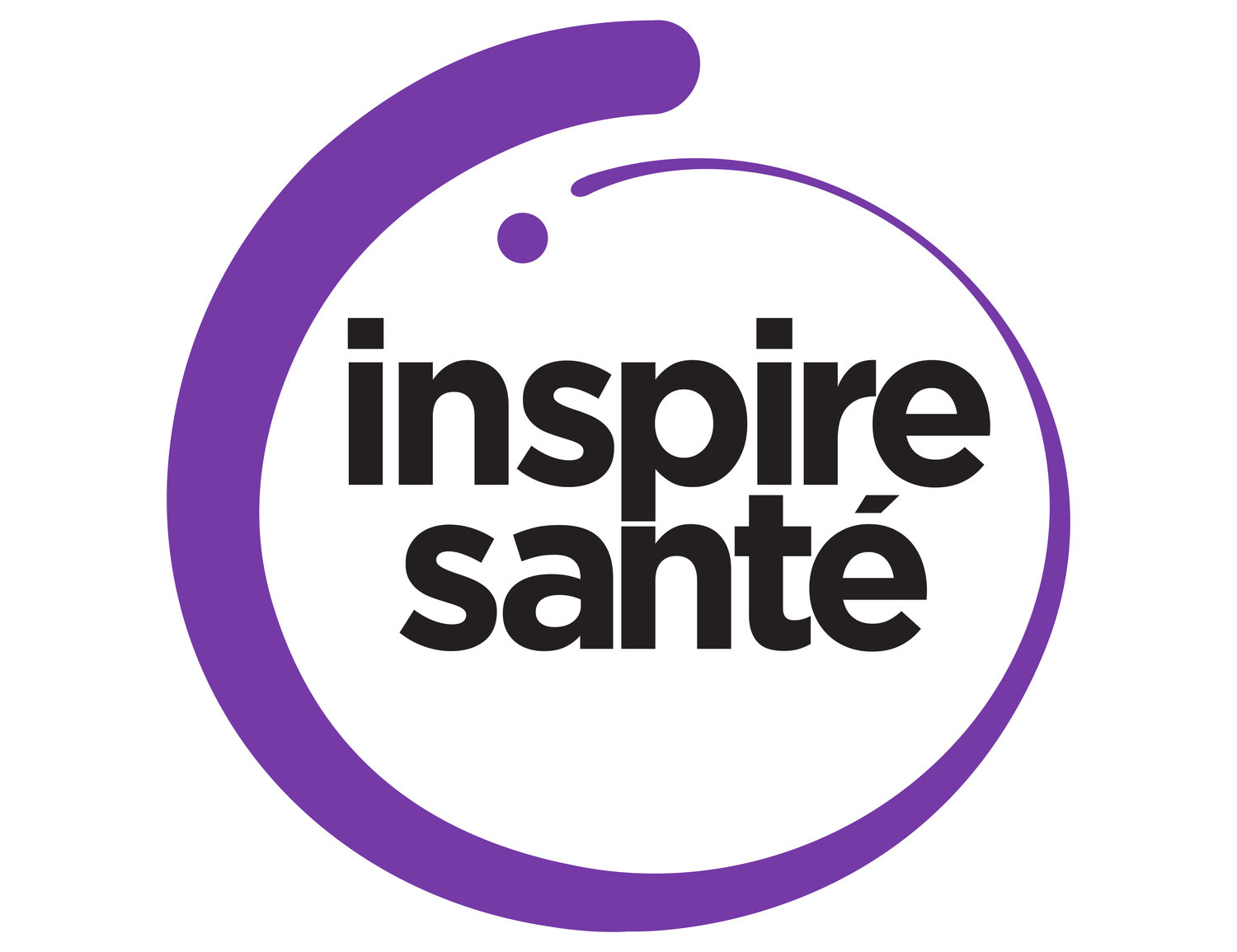Ewelina Beardmore
/Tell us about yourself as if your best friend is introducing you. What makes you YOU?
I’m Ewelina Beardmore, LCPC, and I’m the owner of Ewelina Beardmore Psychotherapy, a counseling practice in the Ravenswood neighborhood of Chicago. What makes me ME is my cultural background; having been born in Poland, raised in France and now living in the United States, I often feel like I belong everywhere and nowhere at the same time. Through my personal journeys I have learned to accept my diversity and in my practice I encourage clients to embrace their differences and not try to fit in a mold.
“I always say it takes a village to help someone heal, and working with those facing sexual health issues, a lot of times the issue is multidimensional. It’s medical, it’s physical, contextually it’s social.”
When you were younger, did you think you'd be doing this work? Where did you expect your life to take you, and is that where you ended up?
Definitely not. As an immigrant, and only child of a single mom, growing up in an underprivileged and sometimes not-so-safe suburb of Paris, I always felt very limited in my ability to have any type of career. For years after we moved from Poland to France when I was a little child, I witnessed the financial and professional struggles my mom experienced in a country that didn’t offer her many opportunities. Seeing this – and living this – obviously didn’t help me dream big. My big dream was to get out of my neighborhood. And I used the Polish language to do this. If I would have gone to college for a general major, I would have had to go to a college in the ghetto near my home. Instead, since the Polish major was only offered in Paris at the Université Paris-Sorbonne, I found my way out. This step allowed me to explore my cultural background and think about ways to use it in a career setting. Pursuing a Master’s degree in travel and hospitality management opened the door for a career in Chicago. And my transition to Chicago allowed me to explore my life’s experiences and think about ways I could use them to make an impact on others. I decided to change careers eight years ago and making the terrifying decision to enroll at The Chicago School of Professional Psychology to become a clinical counselor.
What ignited your passion for women's sexual health?
When I had to pick a concentration in my second year at The Chicago School I knew right away that I wanted to work with women – because of my own experiences having watched my mom – a single woman – overcome challenge after challenge while raising a girl in a foreign country.
These experiences ignited a passion within me to help empower women. While at The Chicago School in the trauma concentration, I started working with refugees and survivors of sexual violence. Seeing women recover from war traumas and sexual violence and learning to have healthy relationships and healthy lives gave me passion to expand this into women’s sexual health.
Many women feel uncomfortable discussing sexual and pelvic health issues. What do you say to these women? How and why should they approach these topics with their healthcare providers?
“If the treatment involves the right team of experts who do a very thorough assessment and provide a personalized treatment, women will recover from pelvic pain or dysfunction. ”
Unfortunately, women in our society – and in many cultures around the world – are socialized to not talk about sexual problems. Because of this, what isn’t normal – such as pain – is often normalized. It saddens me that we don’t live in a society that gives a safe and trusting space to talk about sexual and pelvic health issues. What would I tell women who were uncomfortable discussing sexual and pelvic health issues? That we need to start opening up and challenge judgmental or non-supportive perspectives. That we need to start breaking the cycles. That we should not be living with a belief that experiencing sexual health issues is normal. Any person should be able to have a healthy sexual life. I often speak to healthcare providers directly to ease the discomfort for women who never received the proper healthcare. And I hope as women understand that what they have been dealing with is not to be tolerated, they will feel more confident and assertive in asking for the proper level of care.
How collaborative is your work? Do you often work with other types of healthcare professionals to help your patients?
I’m not overstating this when I say I could not do my work without working with other professionals. I engage pelvic floor therapists, I work with OBGYNs, psychiatrists, and even acupuncturists and massage therapists. I always say it takes a village to help someone heal, and working with those facing sexual health issues, a lot of times the issue is multidimensional. It’s medical, it’s physical, contextually it’s social. I work from a bio-psycho, social, political lens. I cover each one of those areas with clients; therefore, it’s crucial that I collaborate with individuals who can help with each of those areas.
In today's political and cultural climate, many women feel either empowered or particularly vulnerable to disclosing sexual or bodily traumas. Have you seen this reflected in your patients and practice? Does it concern you?
Absolutely I see this first-hand while working with survivors of sexual violence. Women who have been exposed to sexual traumas – and subsequently not having a voice and not feeling heard or believed – not only face the physical trauma but also emotional traumas. There’s often shame, embarrassment, and the breakdown of relationships and confidence. Does it concern me? Absolutely, it does. The problem is systemic.
Tell us about your patients. Who are they, and what brings them to your office?
Having a trauma and sex therapy background, I work primarily with adults – either in individual or couples counseling. The majority of my clients come for sex therapy and that includes sexual traumas, post-partum recovery that involves pelvic floor pain and pain with intercourse, or when it comes to couples, struggles with desire and arousal.
We often say at Inspire Sante that females are strong as hell. How have you seen this exemplified in your practice?
All the time. As I mentioned earlier, I was raised by a strong woman. How else would you describe a single, 26-year-old mother who leaves her home country with her 4-year-old daughter and moves to another country where she has never been, doesn’t know the language, and has no one waiting there to help, simply because that was the only country where she could obtain a visa? Despite my far-from-perfect upbringing, I am forever grateful to my mother for her strength and courage and sacrifice. And for all that I have been given by someone who’s never had the means to give much, I truly believe I owe it to the world to give back to those in need.
As a counselor, I’m constantly reminded of the strength I saw from my mother. It takes a lot of courage and strength to come to a counselor and speak to a stranger about a trauma or sexual issue. The women I see come feeling lost, but often with a motivation to heal and have a healthy sexual life or relationship. They have the desire to recover from an interpersonal or post-partum trauma. Most of the time, my work is to guide women and help them identify the strengths they either forgot they had or didn’t believe they could ever employ again.
Can sex really be pleasurable again for women who've had pelvic pain or dysfunction?
Absolutely yes, for multiple reasons. If the treatment involves the right team of experts who do a very thorough assessment and provide a personalized treatment, women will recover from pelvic pain or dysfunction. But I also think working on expanding the lens of what sexual pleasure is - that a lot of times we reduce to penetration - and working on helping women focusing on being mindful, present with their physical sensations and not putting so much pressure on intercourse is significant in the healing process. Sexual pleasure can be experienced in many different ways. We live in a world that is very narrow-minded when it comes to that.
Where can women learn more about you?
My website is www.ewelinabeardmore.com
My email is ebeardmorelcpc@gmail.com
My Instagram account is: @ewelinabeardmorepsychotherapy







